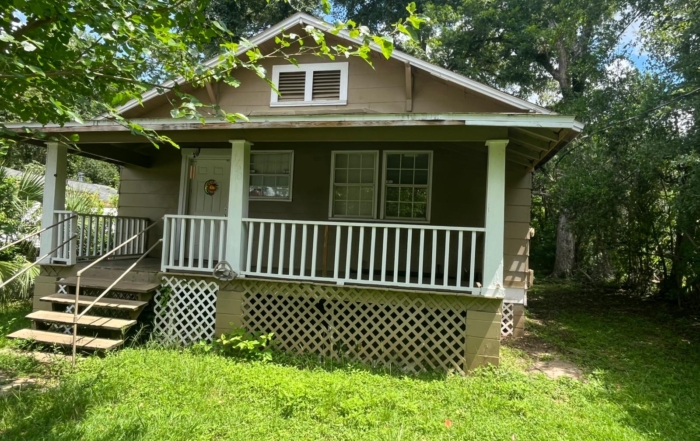
Mastering JV Partnerships: How to Choose the Perfect Partner for Your Next Real Estate Deal
When embarking on a joint venture (JV) in real estate, selecting the right partner is crucial to the success of your deal. Here’s how to choose the perfect JV partner by understanding and leveraging your strengths, compensating for your weaknesses, and finding a complementary collaborator.
1. Assess Your Strengths and Weaknesses
- Skills: Identify the real estate skills you bring, such as property management, market analysis, or negotiation. You can contribute your expertise to the partnership if you excel in these areas.
- Capital: Determine if you have the financial resources to invest. If you have money but lack the necessary skills, look for a partner who is experienced in real estate.
- Property: If you have access to promising properties but need help developing or managing them, this can be your contribution.
- Network: A strong network of buyers or investors can be valuable. If you lack skills or capital, your connections can help facilitate deals.
2. Determine Your Role
- Skill Provider: If you possess the skills but not the money, focus on bringing your expertise and finding a partner with the capital.
- Capital Provider: If you have the money but lack the skills, contribute the funds and seek a skilled partner.
- Property Finder: If you have neither skills nor money but can find good properties, use this as your value proposition.
- Connector: If you lack all of the above, leverage your network to connect buyers with sellers or investors with opportunities.
3. Identify Potential Partners
- Investor Meetup Groups: Attend local real estate investor meetup groups to network with potential partners. These events are excellent opportunities to meet like-minded individuals with various strengths and resources.
- Local Title Companies: Visit local title companies and ask for referrals. Title companies often work with many investors and can recommend reliable partners.
- Realtors and Real Estate Agents: Reach out to realtors who specialize in working with investors. They can connect you with clients looking for JV opportunities.
- Online Platforms: Use online platforms like BiggerPockets, LinkedIn, and other real estate forums to find potential partners. These platforms allow you to connect with a broader audience and find partners with the specific qualities you need.
- Real Estate Conferences and Seminars: Attend industry conferences and seminars to expand your network and meet potential JV partners.
- Social Media: Leverage social media to showcase your expertise and attract potential partners. Join relevant groups and engage in discussions to increase your visibility.
4. Evaluate Compatibility
- Values and Goals: Ensure your potential partner shares similar business values and goals.
- Work Style: Consider if your working styles are compatible.
- Trust and Integrity: Conduct thorough due diligence to ensure trust and integrity.
5. Establish Clear Agreements
- Draft a detailed JV agreement outlining each party’s roles, responsibilities, contributions, and profit-sharing arrangements.
- Include clauses for conflict resolution, exit strategies, and other contingencies.
6. Communicate Regularly
- Maintain open and regular communication to ensure alignment and address any issues promptly.
- Regularly review the progress and performance of the JV to ensure it is meeting its objectives.
By following these steps, you can select a JV partner who complements your strengths, compensates for your weaknesses, and helps ensure the success of your real estate ventures. The right partner will bring the necessary resources and skills to the table and will also be someone you can trust and work with effectively over the long term. Finding the perfect partner involves a mix of networking, due diligence, and clear communication to build a successful and lasting joint venture.
Determine Your Ideal Real Estate Strategy
Once you clearly understand what you bring to the table and how to find the right JV partner, the next step is to figure out your ideal real estate strategy. Whether it’s long-term rentals (LTR), short-term rentals (STR), fix-and-flips, or another strategy, aligning your approach with your partner’s strengths and market opportunities is crucial.
1. Long-Term Rentals (LTR)
Long-term rentals involve purchasing properties to rent out to tenants for extended periods. This strategy offers consistent income and potential property appreciation over time.
Pros:
- Steady cash flow from rental income.
- Potential for property value appreciation.
- Lower tenant turnover compared to short-term rentals.
Cons:
- Property management can be time-consuming.
- Requires long-term commitment and capital investment.
- Tenant issues and maintenance costs can affect profitability.
Best Partner Match:
- A partner with experience in property management.
- Someone with capital to invest in acquiring properties.
- A partner who understands tenant laws and regulations.
2. Short-Term Rentals (STR)
Short-term rentals involve renting out properties nightly or weekly, such as through Airbnb or other vacation rental platforms. This strategy can yield higher rental income but comes with increased management responsibilities.
Pros:
- Higher rental income potential compared to long-term rentals.
- Flexibility to use the property personally when not rented.
- Opportunity to target vacationers and tourists.
Cons:
- Higher management and maintenance demands.
- Increased risk of vacancy periods.
- Regulatory restrictions in some areas.
Best Partner Match:
- A partner with experience in hospitality and property management.
- Someone with marketing skills to attract short-term tenants.
- A partner familiar with local STR regulations and licensing.
3. Fix-and-Flips
Fix-and-flips involve purchasing, renovating, and selling properties for a profit. This strategy is ideal for those looking for quick returns.
Pros:
- Potential for high profits in a short period.
- Ability to improve and add value to properties.
- Quick turnaround compared to buy-and-hold strategies.
Cons:
- High upfront capital required for purchase and renovations.
- Market risks and fluctuations can affect profitability.
- Requires construction and project management expertise.
Best Partner Match:
- A partner with experience in construction and renovations.
- Someone with access to capital for purchasing and fixing properties.
- A partner skilled in market analysis to identify profitable deals.
4. Wholesaling
Wholesaling involves finding properties at a discount, contracting them, and then selling the contract to another investor for a fee. This strategy requires little capital but extensive networking and negotiation skills.
Pros:
- Low capital requirement.
- Quick turnaround and cash flow.
- Minimal risk since you’re not holding the property long-term.
Cons:
- Requires strong negotiation and deal-finding skills.
- Dependent on a robust network of investors and buyers.
- Profit margins can be slim in competitive markets.
Best Partner Match:
- A partner with strong negotiation and networking skills.
- Someone with an extensive buyer list or investor connections.
- A partner with market knowledge to identify good deals.
Implementing Your Strategy
Once you’ve determined your ideal strategy, ensure it aligns with your partner’s strengths and market opportunities. Create a detailed plan that outlines your goals, target properties, investment criteria, and exit strategies.
- Set Clear Goals: Define what you aim to achieve with your real estate investments, whether it’s steady cash flow, high returns, or portfolio diversification.
- Target Market: Choose markets that align with your strategy, such as tourist areas for STR or growing neighborhoods for LTR.
- Investment Criteria: Establish criteria for property selection, including location, condition, price range, and potential returns.
- Exit Strategy: Plan how and when you will exit the investment, whether selling the property, refinancing, or holding for the long term.
You can create a successful and profitable JV partnership in real estate by figuring out your ideal strategy and ensuring it aligns with your partner’s strengths.
The Power of Home Equity: Utilizing Your Property’s Value
allanmcnabb2025-07-01T20:40:35+00:00July 1st, 2025|Comments Off on The Power of Home Equity: Utilizing Your Property’s Value
Your home is more than just a place to live; it’s one of the most significant financial assets you’re likely to own. As you pay down your mortgage and your property’s value [...]
Graystone Real Estate Expands into South Florida via Miami MLS
Jorge Vazquez2025-07-01T00:47:05+00:00July 1st, 2025|Comments Off on Graystone Real Estate Expands into South Florida via Miami MLS
Graystone Real Estate Expands into South Florida via Miami MLS FOR IMMEDIATE RELEASE June 30, 2025 TAMPA, FL — Graystone Real Estate, a division of Graystone Investment Group and one of Florida’s fastest-growing real [...]
For Sale: 1046 Dover St, Tallahassee, FL 32304
Jorge Vazquez2025-06-30T18:14:58+00:00June 30th, 2025|Comments Off on For Sale: 1046 Dover St, Tallahassee, FL 32304
Property Details: • Address: 1046 Dover St, Tallahassee, FL 32304 • Asking Price: $107,500 • 3 Bedrooms / 2 Bathrooms • 936 sq ft [...]
Protected: Here’s How to Get Assignment Fees Financed (Even When Lenders Push Back)
Jorge Vazquez2025-07-01T20:45:37+00:00June 30th, 2025|Comments Off on Protected: Here’s How to Get Assignment Fees Financed (Even When Lenders Push Back)
This content is password protected. To view it please enter your password below: Password:
Florida’s Not Crashing—It’s Resetting: Why This Market Is Still a Goldmine for Smart Investors
Jorge Vazquez2025-06-28T22:52:38+00:00June 28th, 2025|Comments Off on Florida’s Not Crashing—It’s Resetting: Why This Market Is Still a Goldmine for Smart Investors
The so-called "decline" in Florida’s housing market is nothing like 2008. Back then, we were dealing with subprime mortgages, a collapsing banking system, and genuine panic. Today? We’re dealing with pricing [...]
Subject-To Is Back, Baby: Why I’m Buying Infinite Return Properties in 2025
Jorge Vazquez2025-06-28T22:45:54+00:00June 27th, 2025|Comments Off on Subject-To Is Back, Baby: Why I’m Buying Infinite Return Properties in 2025
Subject-To Is Back, Baby: Why I'm Buying Infinite Return Properties in 2025 It’s crazy the deals I’m finding right now. This happened to me last week. The seller was a [...]






